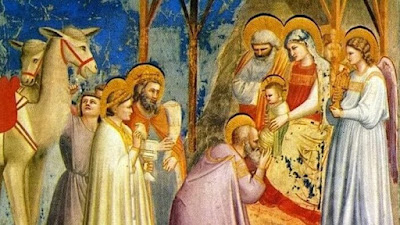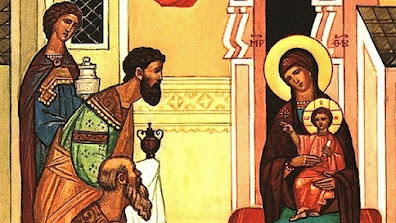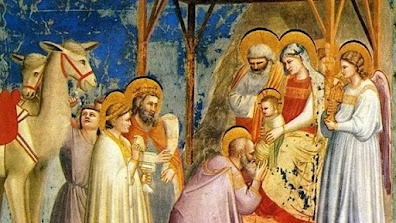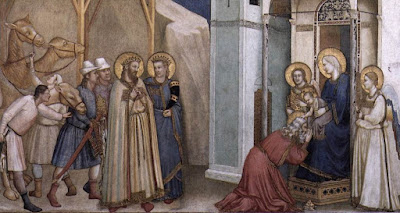Homily for the Epiphany of the Lord, January 2, 2022, Year C

Fr. Charles Irvin Diocese of Lansing ( Click here for Sunday’s readings ) From Advent until now the readings and themes of our liturgies have all centered-on God’s coming to us. The underlying movement has been God seeking us out and offering Himself to us in His Son, in the Word made flesh, Jesus Christ. He is the Messiah first promised to the descendants of Adam and Eve after their Fall. In today’s Liturgy the basic movement shifts. Now it’s all about our seeking, specifically our seeking out God in His Christ, and by the word “our” I mean all of humanity. The Magi we need to note were not Jews. They were the representatives of the gentile nations and peoples. They were kings who were sages, wise men, visionaries, men who searched beyond what is obvious; searching into the mysterious non-scientific world in which we exist as distinguished from what is merely technical and material. The word "question" has the word "quest" tucked inside it, an idea that’s pre







